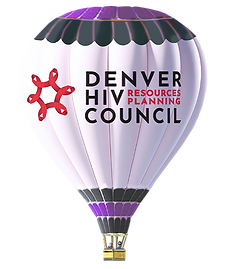

PRIORITY SETTING
This approach honors the legacy of The Denver Principles, which call for the meaningful involvement of PLHIV in every aspect of their care and advocacy. By prioritizing services with community input, we uphold the right of PLHIV to be not just recipients of care—but leaders in shaping it.
Through the process of Priority Setting, the Planning Council identifies which services are most vital to improving the lives of People Living with HIV (PLHIV). While the Ryan White HIV/AIDS Program funds services that support better health outcomes, Priority Setting ensures that decisions are not made in a vacuum—but with the lived experiences of PLHIV at the forefront.

The Planning Council values the lived experiences of People Living with HIV as it transforms the traditional role of “patient” into “participant”. This places the voices of those most impacted by HIV at the center of the decision-making process. When PLHIV are heard, priorities evolve to reflect real needs including those that may be unique or less commonly shared.
This process also promotes a value-based, participant-led model to ensure that the Ryan White system stays relevant and grounded in real-life experience.



The ultimate goal of Priority Setting is to ensure that each decision the Planning Council makes goes beyond numbers —centering the lives, voices, and well-being of people living with HIV.

Helpful background information...
RYAN WHITE PART A - SERVICE CATEGORIES
Review: Core and Support Service Categories
A service category is a provision that is designed to serve specific needs for people living with HIV (PLHIV). Ryan White Part A- Service Categories are divided into two types:
The Core Medical Service Categories
Core Medical Services relate directly to the provision of HIV care and treatment Core Medical Service Categories: - AIDS Pharmaceutical Assistance (ADAP/ SDAP) - Early Intervention Services - Health Insurance Premium/ Cost Sharing Assistance - Home and Community-Based Health Services - Home Health Care - Hospice - Medical Case Management, including Treatment Adherence Services - Medical Nutrition Therapy - Mental Health Services - Oral Health Care - Outpatient/Ambulatory Health Services - Substance Abuse Outpatient Care
Note: At least 75% of funded categories should be core service categories. If support services used exceed 25% of funding Denver HIV Resources (DHR) must apply for a waiver.
The Support Service Categories
Support Services help PLHIV to stay in care and support better medical outcomes Support Service Categories: - Child Care Services - Emergency Financial Assistance - Food Bank/Home Delivered Meals - Health Education/Risk Reduction - Housing - Legal Services - Linguistic Services - Medical Transportation - Non-Medical Case Management Services - Other Professional Services - Outreach Services - Permanency Planning - Psychosocial Support Services - Referral for Health Care and Support Services - Rehabilitation Services - Respite Care - Substance Abuse Services (residential)
More information on service categories, including definitions and the allowable use of funds can be found in Policy Clarification Notice (PCN) #16-02

What is Priority Setting?
Priority Setting is the process of ranking Ryan White Part A service categories from highest to lowest priority based on the needs of PLHIV in the Denver Transitional Grant Area (TGA). This ranking helps determine which services are most needed and only those that are prioritized can receive a funding allocation.
This process is especially important when funding shifts occur (known as reallocations) or when unforeseen circumstances require contingency funding. For example, if changes in federal funding impact Medicaid, the Planning Council may need to adjust allocations to address the resulting service gaps.
Priority Setting is conducted annually. All 24 Ryan White Part A service categories are reviewed and the Planning Council is responsible for ranking them in order of importance.
It’s important to note:
-
Not all service categories will receive funding.
-
The ranking order reflects need and not cost because some services may be more expensive to implement than others and may be covered by other funding sources.
-
Core Medical and Support Services can be ranked at any level depending on Planning Council consensus.
To be most effective, Priority Setting should be completed well in advance of the Resource Allocation process. Early completion ensures that Planning Council members are familiar with priority areas, allows time for targeted data requests and listening sessions, and provides timely guidance to the office of Denver HIV Resources (DHR).
THE HEART BEAT OF LIVED HIV EXPERIENCE
Elevating What PLHIV Say Matters Most
By recognizing PLHIV as active participants—not just recipients—in the planning and implementation of HIV care, the Planning Council strives to strengthen a culturally responsive system at the heart of the Ryan White Part A program.
Why this matters...
EXAMPLE 1
The needs of the individual changes throughout their lifetime. Above all, PLHIV experiencing homelessness may prioritize Housing Support Services and Emergency Financial Assistance as services that are critical for stabilizing their daily life, over other service categories.
EXAMPLE 2
In the Denver TGA, Psychosocial Support Services have historically ranked high because social connection creates space for shared knowledge, emotional support and empowerment. This has been reiterated at all listening sessions by PLHIV. People find security, comfort and helpful tips from their peers.
EXAMPLE 3
While Food Bank/Home Delivered Meals do not receive a high percentage of allocated funds, PLHIV have made it clear that going to a food bank brings a sense of security. Additionally, establishing a routine visit to the food bank enhances their wellbeing. In one of the listening sessions a participant stated, "I find the connection with the staff to be as important as getting my food." and another said, "It feels good to get out of the house and do something that is good for my overall health. I get exercise, food and some time to be social."

THE LIVED HIV EXPERIENCE
The Planning Council gathers input from People Living with HIV (PLHIV) across the Denver Transitional Grant Area (TGA) through multiple avenues. Their lived experience shapes the provision of services and ensures that decisions reflect real community needs. The following is what the Planning Council considers for prioritization.
1. Listening Sessions
Organized by the Community Engagement Committee (CEC), listening sessions provide a platform for PLHIV to share their experiences and priorities. Sessions are held in various locations across Denver, reflecting a broad range of identities and needs.
Some are designed for specific populations—such as HIV & Aging (50+), monolingual Spanish-speaking individuals, or groups connected to existing peer support programs. Participants receive a light meal and a gift card as appreciation for their time. Summaries from each session are reviewed by the CEC and shared with the full Planning Council.
Interested in getting involved?
Contact Planning Council staff to assist with a session or attend a CEC meeting.
2. PLHIV on the Council
Federal guidelines require that at least 33% of Planning Council members be unaligned PLHIV—meaning individuals not in employment of, or affiliated with a Ryan White Part A service provider. Currently, PLHIV make up 50% of the Council's membership (both aligned and unaligned), providing direct insight into the needs, barriers, and strengths of the community.
Note: Any actual or perceived conflicts of interest must be disclosed when sharing information
related to HIV care or services.
3. Input from Providers and Staff at Ryan White Funded Agencies
Service providers and frontline staff frequently share emerging issues, successes, and client feedback with Planning Council staff.
Note: As stated above, any actual or perceived conflicts of interest must be disclosed when
sharing information related to HIV care or services.
4. Open Community Feedback
Each general council meeting and all DHRPC committee meetings include dedicated time for public comment, offering an opportunity to share insights and concerns by PLHIV.
5. Denver HIV Resources (DHR) and Grievances
Planning Council staff maintains regular communication with DHR regarding their relationship with contracted service agencies to gather data and respond to community grievances.
When grievances are submitted they are reviewed by the DHR team, Community Coordinator and Ryan White Part B, then appropriate actions are taken. The Community Coordinator compiles and analyzes trends to share relevant findings with the Planning Council to inform decision-making.
6. Needs Assessments & Strategic Data
The Planning Council uses quantitative and qualitative data from needs assessments, surveys, and community forums to inform its decisions. This ensures that recommendations and suggestions are supported by documentation and community-led dialogue.
Community feedback when openly discussed in Planning Council meetings is documented, valid and important, and should be sited when shaping policy and funding decisions.
NEXT STEP: PLANNING COUNCIL DISCUSSION
Discuss, Sort, Propose, Finalize, Vote
Each service category is discussed and assigned a rank from 1 (most important) to 24 (least important). Various tools—such as breakout groups, queue sorts, and group discussions—may be used to support thoughtful, community-centered decision-making.
To ensure clarity, categories that are not expected to be implemented can be grouped separately after the primary categories are prioritized. However, any decision to group, link, or set aside categories must be voted on by the Planning Council.
Important: The final prioritized list of all categories must be formally approved—even if the ranking remains unchanged from the previous year.
Once finalized, the Priority Setting outcomes can guide:
-
Targeted data collection efforts
-
Future surveys or listening session focus areas
-
Resource allocation planning
This process ensures that community voice and real-time data continue to shape a responsive and effective HIV service system.

The Promise of Priority Setting
Priority setting isn't just a process; it's a promise. A promise that, no matter the changes in funding or policy, the Denver HIV Resources Planning Council is dedicated to follow mandated responsibilities with the hope that every person living with HIV has access to the services that will help them thrive. Together, we will continue to move forward, prioritizing the well-being of our community.






